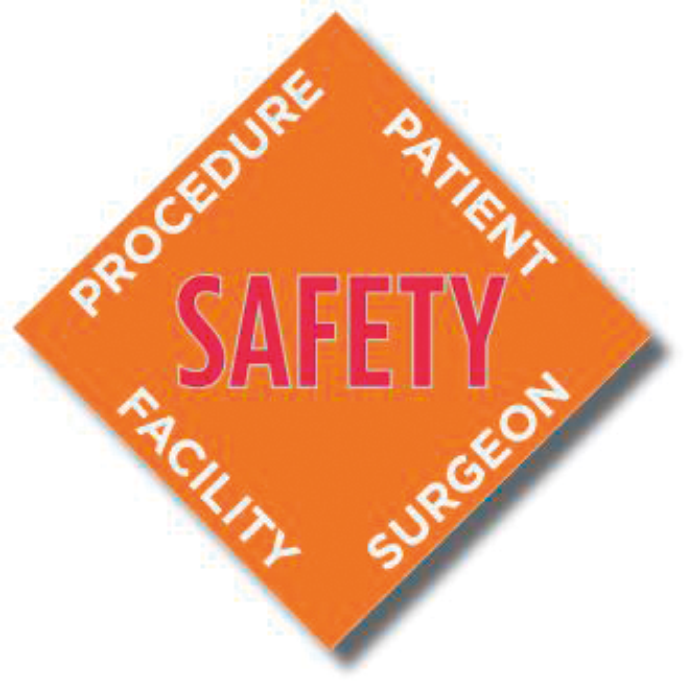In the second of a two-part article (see Part 1 here) Professor James Frame, from the Anglia Ruskin University, gives us his opinion on what needs to be done to improve cosmetic surgery and patient safety in the UK.
Medical indemnity
Over the past 30 years premiums for medical indemnity with the Medical Defence Union (MDU) have risen by an astonishing multiple of 15 times. Surely it is common sense to now regulate the legal services who are benefitting from this gravy train. It is normal now for the MDU to offer annual premiums well in excess of £100,000 to non NHS plastic surgeons who have held substantive appointments in the NHS. To the new consultant – you will be softened up with reduced premiums based on your initially low net income, but don’t be fooled.
They want at least 30% of your hard earned income, the taxman is after 45% plus VAT, the private hospital facilities, regulators and appraisers want a 30% cut and you get the crusts associated with leftover expenses. With the major expenses associated with running a busy practice most, if not all, of the new breed of aesthetic surgeons form limited liability companies (LLC) with the benefit of significantly lower tax rate and the ability to declare bankruptcy if the going gets tough or there is major uncovered litigation. If a politically motivated higher tax rate for the non-LLC surgeon were to be introduced it would be far more efficient to take patients overseas into a more pleasant working environment such as Dubai.
Are LLC surgeons really allowed to benefit from the low tax benefit this brings, especially if they declare bankruptcy at the end of their career? In the event of serious financial collapse or major litigation expenses, the company folds and there is protection of most assets. At retirement the company dissolves and some manage to avoid the larger ‘end’ tax bill by inventive accountancy. But anyway, why leave the security and comforts of the NHS with its generous pension scheme? NHS consultants may still own LLCs that are non-declarable to the NHS, of course.
There is little wonder that some patients are finding this surgery unaffordable, with the less savvy oft senior surgeons already paying the highest tax band rate needing to charge more to patients to cover insurance premiums. These surgeons are effectively subsidising inexperienced start up surgeons paying lower insurance premiums because of low declared income often through an LLC. These are the inexperienced and untrained aesthetic surgeons. Wholly unfair to both the patients and higher tax rate paying surgeons, of course. Why don’t the insurance companies insist on a period of mentorship and supervision to guide the early years of the aesthetic surgeon and level the subscription fees? The taxman should benefit from the higher earning surgeons anyway; why should the insurance companies?
I personally think that private hospitals with the new-found power to regulate which surgeries an aesthetic surgeon can perform in their facility should pay for the medical indemnity of that surgeon, particularly if that facility dictates what implants should be used. This is already how it works in the highly litigious NHS, where the surgeons are insured by the NHS, and also for NHS surgeons carrying out NHS work in private hospitals for an extra fee. There is a clear and potential conflict of interest for surgeons to perform more efficiently in the private sector of course. With winter cancellations of all elective surgery in the NHS, those surgeons are laughing all the way to the bank.
Perhaps a more logical way forward would be to increase capacity to the NHS by nationalising those private hospitals generating 80% of their income through NHS patients, or insisting that NHS consultants should only operate in the private hospital in NHS time for no additional fee. It would then be interesting to see if the efficiencies and savings created per patient within the private sector continue. For those private hospitals remaining independent it would also release them to live up to their name and concentrate on the insured and self-pay markets – including cosmetic surgery. Standards would then have to improve if the private hospitals were having to work harder for their private self-pay referrals.
The medical indemnity companies should offer reduced rates to newly appointed aesthetic surgeons on the condition that they are mentored or supervised. Those supervisors should be equally compensated by reduced premiums.
General aesthetic surgery training
The Anglia Ruskin University, with the endorsement of UK Association of Aesthetic Plastic Surgeons (UKAAPS), set up an MCh Training Programme in Aesthetic Surgery some years ago. It was recognised that there are 14 fundamental competencies that plastic surgeons should be qualified to undertake, with hands-on-training, regular assessment and examination at viva by experts in the field. To those that have completed the course, we have seen improvement in basic understanding, improved knowledge and ability, confidence to treat private patients and great success within the private sector. The degree is recognised by International Society of Plastic Surgery (ISAPS) and was developed to help satisfy the safety diamond criteria of surgical competency in aesthetic surgery (Figure 1).

Figure 1: The ISAPS Safety Diamond.
The 14 competencies are shown on the Anglia Ruskin Medical School website and are open to all plastic surgeons (Figure 2). It is a skill learning programme that follows more than 30 outcome-assessed operations and affiliates with a didactic MSc Aesthetic Surgery course at Queen Mary’s in London. With current rules and regulations regarding interdisciplinary education, the courses can be modified to suit surgeons from other specialties.
1. Breast Augmentation
2. Mastopexy
3. Mastopexy & Augmentation
4. Breast Reduction
5. Liposuction
6. Blepharoplasty
7. Facelift
8. Buttock Augmentation
9. Abdominoplasty
10. Thigh Lift
11. Inner Arm Reduction
12. Autologous Fat Transfer
13. Rhinoplasty
14. Non-surgical Aesthetics
Figure 2: The 14 aesthetic surgery competencies used in hands-on training in aesthetic surgery for accredited plastic surgeons. After successful completion of observed surgeries, reflection on outcomes, a continuous assessment by examiners, and after viva voce examination, the awards of Certificate, MSc or MCh are presented by the Anglia Ruskin University. Most should pass the certificate examination if competent. The MCh will demand further effort including a thesis.
Presentations
British plastic surgeons are reluctant to present or to publish their own experiences in aesthetic surgery. This again is the Dunning Kruger effect, where surgeons think that what they do is common knowledge and others know more. Nothing could be further from the truth. It is oft the case that those that speak the most and the loudest are not the best and they are relaying misinformation and wishful thinking. There are prime examples in social media where the ‘experts’ that we follow are lambasted by their patients. No-one is perfect and we all get complications but honesty and disclosure is paramount. For the past two years UKAAPS has hosted a national meeting in collaboration with Aesthetic Medicine Live at Olympia. UKAAPS members have enjoyed presenting their own experiences and interests in aesthetic surgery and we have all learned some amazing and non complicated tips and tricks from some of the most experienced surgeons in the UK. I think that it should be compulsory for practising UK aesthetic surgeons to present their data to peers on a regular basis and this should be submitted as a part of revalidation. Improved outcomes for all should be the impact.
Finally
In the event of medical litigation, the British Associstion of Plastic and Reconstructive Surgery (BAPRAS) should stand behind its members by reviewing the case records and offer advice on any personal responsibility within a claim made against the member surgeon. If the surgeon is deemed at fault it must be explained to the surgeon and steps taken to rectify the practice, including offer of retraining in the most serious cases. Expert peer advice should carry much weight in the litigation process. BAPRAS, as the senior association, has been requested by UKAAPS to lead on this through a Special Interest Group for Aesthetic Surgery. It would certainly improve attendance by senior members if more innovative aesthetic surgery sessions were included in the meetings. Certainly, junior plastic surgeons and, I suspect, non-plastic surgeons, are crying out for didactic experienced education at the least, but hands-on training is the ‘holy grail’ that is well within grasp.
Part 1 of Prof Frame’s fascinating article is available here.
Share your views on these topics in a letter to the editor, by emailing
diana@pinpoint-scotland.com
COMMENTS ARE WELCOME





